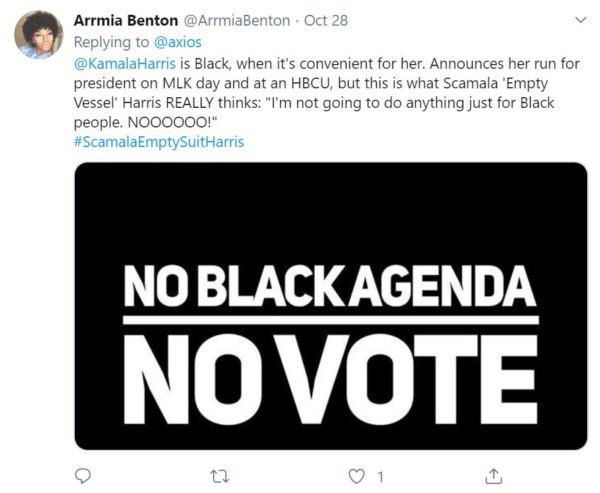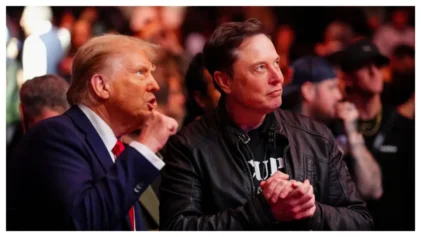Sen. Kamala Harris blamed her recent campaign struggles in the 2020 Democratic presidential race on American voters who can’t imagine a Black woman in the nation’s top elected position.
The former prosecutor said in an interview Sunday with “Axios on HBO” that “electability” was the “elephant in the room” for her campaign.
“Is America ready for a woman and a woman of color to be president of the United States?” Harris asked.
Axios White House and politics editor Margaret Talev responded that “America was ready for a black man to be president of the United States,” and elected former President Barack Obama.
“And this conversation happened for him,” Harris said in response. “There is a lack of ability or a difficulty in imagining that someone who we have never seen can do a job that has been done 45 times by someone that is not that person.”
Some Black Twitter users defended Harris, and others criticized her as using her heritage as a “woman of color” when it suits her.
In a post shared with a meme reading “NO BLACK AGENDA NO VOTE,” Arrmia Benton tweeted:
“@KamalaHarris is Black, when it’s convenient for her. Announces her run for president on MLK day and at an HBCU, but this is what Scamala ‘Empty Vessel’ Harris REALLY thinks: ‘I’m not going to do anything just for Black people. NOOOOOO!’ #ScamalaEmptySuitHarris”

Deona Hooper, founder of a news and resource site for social workers dubbed SW Helper, defended the senator on Twitter Tuesday.
Hooper said, “Yall keep paying attention to those Kamala aint black hashtags and fake social media posts, you are going to see come voting day how much black women are riding with @KamalaHarris. Polling has failed before. That’s why GOP had a meltdown when they couldnt believe Romney lost.”
Support for Harris, the fifth favorite among Democratic contenders, is down from 15 percent this summer to 5 percent, according to RealClearPolitics.
In the polls, she fell behind former Vice President Joe Biden, Sen. Elizabeth Warren, Sen. Bernie Sanders and South Bend, Indiana, Mayor Pete Buttigieg, according to polling data from Oct. 17 to Oct. 27.
Harris spoke to HBO on the campaign trail in Cedar Rapids, Iowa, where she was promoting her “Medicare for All” plan.
She has been accused of “flip-flopping” in her views on health care after she backed Sanders’ universal health care plan only to later craft her own version of the plan.
Harris said of Sanders’ plan she “literally made it better.”
Key differences in health care plans between Sanders and Harris include how each senator proposes to pay for their proposals, when they would be implemented and if they would include a private insurance option.
Harris’ plan relies on a tax on households earning more than $100,000, uses a 10-year transition to get it implemented and offers a private insurance option.
Sanders’ proposal, which he introduced legislation on earlier this year, includes a 4 percent “premium” on households earning more than $29,000, uses a four-year transition period and ousts private insurers in cases where the government has a comparable plan.
Harris said on her website that she believes Sanders’ plan “hits the middle class too hard.”


